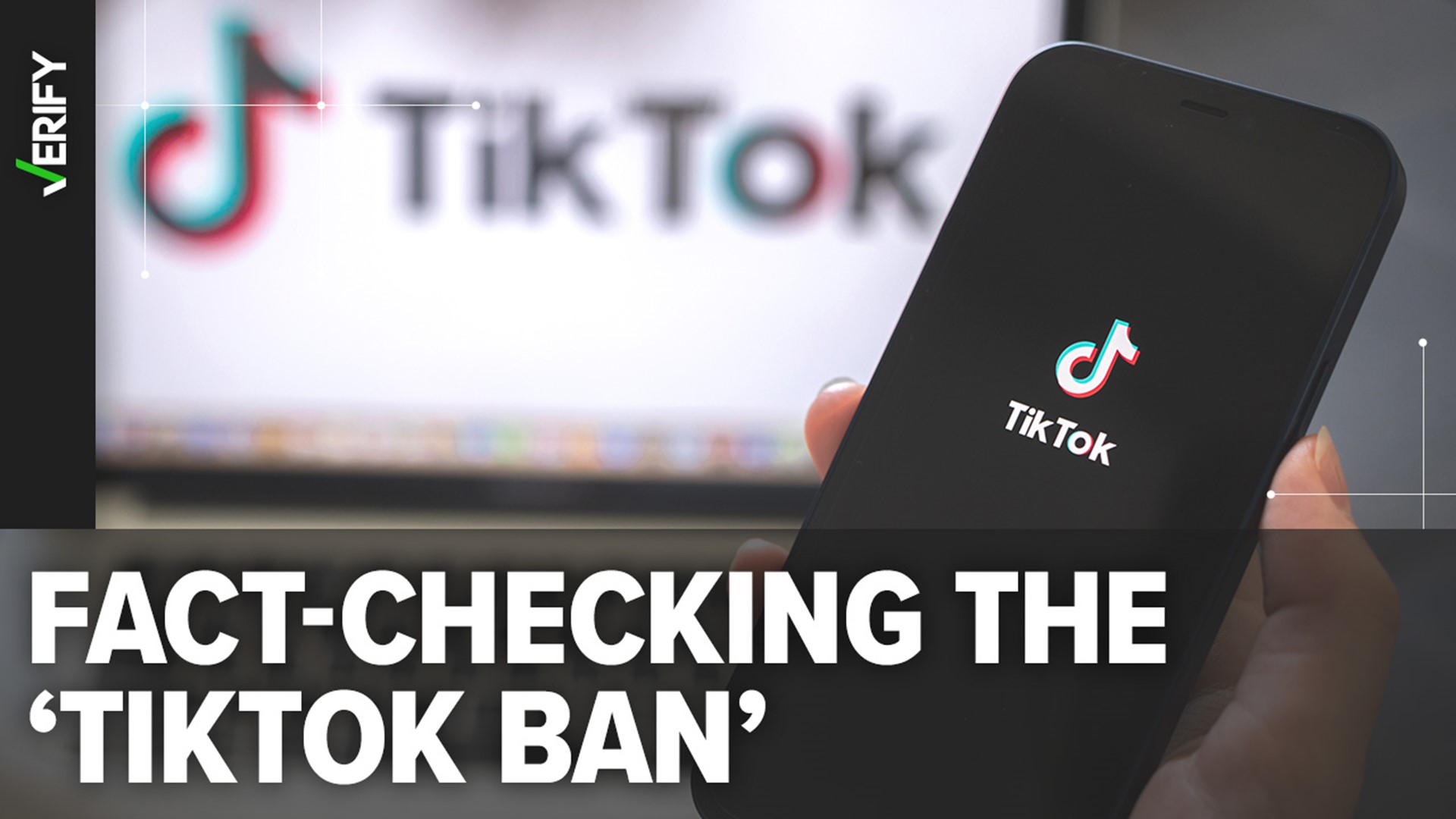UPDATE (04/24/2024): On April 24, President Joe Biden signed a $95 billion foreign aid package into law that includes a provision that would force TikTok to be sold or be banned in the U.S. The legislation gives TikTok’s Chinese-owned parent company, ByteDance, nine months to sell TikTok, and a possible three-month extension if a sale is in progress.
The original story continues as published below.
TikTok is one of the most popular social media platforms in the United States. However, some lawmakers and critics of TikTok see it as a national security threat, arguing that the Chinese government could force the company’s owner, Chinese technology firm ByteDance Ltd., to share data on American users.
On March 13, the House passed a bill that could lead to a TikTok ban in the U.S. if ByteDance doesn’t sell its stakes in TikTok.
Some social media users claim the legislation is direct government censorship that would give the president extraordinary powers to ban any app deemed a security threat. While others say they got a message from TikTok urging users to call Congress because it plans to shut down the app. Recent online search trends show that many people are wondering what the bill actually does.
Here’s what we can VERIFY about the “TikTok ban” bill.
THE SOURCES
- H.R.7521 - Protecting Americans from Foreign Adversary Controlled Applications Act
- Press release issued by the Select Committee on the Chinese Communist Party (CCP)
- Electronic Frontier Foundation (EFF)
- American Civil Liberties Union (ACLU)
QUESTION #1
Is TikTok officially banned in the U.S.?
THE ANSWER
No, TikTok is not officially banned in the U.S.
Some social media users are confused as to whether the House’s passage of the bill means TikTok is already banned in the U.S. However, the Senate would still need to pass the bill and President Joe Biden would have to sign it before it could become law.
The proposal could also be challenged in the courts by TikTok, which has sued to counter other attempts to ban the platform both nationally and at the state level.
On March 13, the House passed H.R.7521, called the “Protecting Americans from Foreign Adversary Controlled Applications Act,” by a vote of 352-65. The bill would ban TikTok if its Chinese owner ByteDance doesn’t sell its stakes in the popular social media platform within six months of the bill’s enactment.
The bill’s prospects in the Senate are currently unclear. Senate Majority Leader Chuck Schumer (D-N.Y.), said he’ll have to consult with relevant committee chairs to determine the bill’s path. Meanwhile, Sen. Rand Paul (R-Ky.) pledged in an interview to block the legislation if he felt it violated the Constitution.
Biden previously told reporters if Congress passes the legislation, he will sign it into law. In February, Biden’s re-election campaign joined TikTok to gain support from young Americans ahead of the election.
QUESTION #2
Does this legislation only apply to TikTok?
THE ANSWER
No, the “Protecting Americans from Foreign Adversary Controlled Applications Act” does not only apply to TikTok.
According to a March 5 press release issued by the bill’s sponsors, H.R.7521 also applies to other social media applications that are controlled by foreign adversaries of the U.S. that “pose an unacceptable risk to U.S. national security.” Those foreign adversaries, which are defined in Title 10 of the U.S. Code, include Russia, Iran and North Korea, in addition to China.
“Such apps allow our adversaries to surveil and influence the American public, both through the data we produce and the information we share and consume,” the press release says.
The Electronic Frontier Foundation (EFF) says Chinese instant-messaging app WeChat would likely also be a target. WeChat is one of the world’s largest standalone messenger platforms, with over a billion users, according to EFF.
However, the legislation does not apply to social media apps or websites that are primarily used to post product reviews, business reviews, or travel information and reviews, according to the bill’s text.
QUESTION #3
Would this bill give the president the power to ban any app deemed a national security threat?
THE ANSWER
If passed, the president would only have the authority to ban social media apps that meet the following qualifications:
were owned/controlled by a foreign adversary
that are deemed a threat to national security
that are considered social media with over one million active users
“This legislation does not regulate speech. It is focused entirely on foreign adversary control—not the content of speech being shared. This bill only applies to specifically defined social media apps subject to the control of foreign adversaries, as defined by Congress,” the press release says.
TikTok has long denied that it could be used as a tool of the Chinese government. The company has said it has never shared U.S. user data with Chinese authorities and won’t do so if it is asked. To date, the U.S. government also has not provided evidence that shows TikTok shared such information with Chinese authorities.
The Associated Press contributed to this report.

